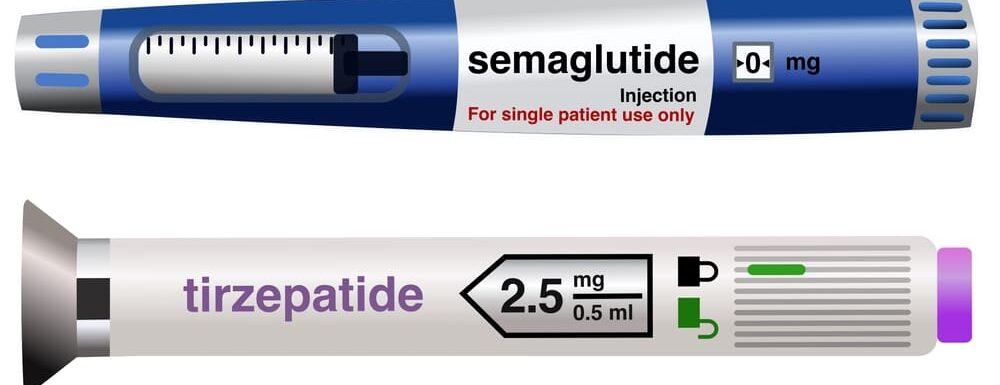
Dr. Trace Curry
Medical Director
JourneyLite
We know that weight loss surgery is superior to GLP-1’s for many overweight patients, so I thought I would compile a list of 5 reasons why weight loss surgery beats GLP-1’s (GLP-1 receptor agonists, or GLP1RA’s). As a weight loss specialist treating patients for over 20 years with both medications, surgeries, and procedures such as gastric balloon, there has never been a time where patients had more options to investigate to help them lose weight. Unfortunately, sometimes more options bring more confusion in terms of the best path for somebody who wants to knock out some unwanted pounds. So lets try to make a clearer picture out this crowded field of options!
GLP-1 receptor agonists such as Wegovy, Ozempic, Zepbound, and Mounjaro are in the news every day. Will these medications cause weight loss surgery to become obsolete? The answer is no, according to a lot of current data including some unveiled at a recent poster presentation at the American Society of Bariatric Surgery. The presenters looked at ~25,000 gastric sleeve/gastric bypass patients and compared the results to around 12,000 patients being treated with semaglutide and 3200 patients on tirzepatide.
After analyzing these results, here are 5 reasons that, for some patients, weight loss surgery is better than GLP-1 receptor agonists.
- Amount of weight loss
- In the lifestyle-only group, meaning they did not receive and medications or surgery, patients lost a mean total body weight loss of 7.4%. Patients universally regained weight with time and went back to their pre-intervention weight within around 4 years.
- In the GLP-1 group:
- Treatment with semaglutide weekly injections for 20 weeks resulted in a mean total body weight loss of 10.6%
- Percent total body weight loss is calculated by multiplying the percentage loss by the patient’s weight. So if you’re 300 lbs and you lost 10% of your total body weight, that would be 250 x .10 = 25 lbs
- Treatment with weekly tirzepatide injections for 36 weeks yielded a mean total body weight loss of 21.1%
- While this seems promising on the surface, about half of the weight was regained within a year after stopping the injections, whereas continuing the medications indefinitely provided little additional weight loss.
- Even if the 250 lb patient continues the medication, the thought of injecting yourself with a ~$1000/month medication weekly for the rest of your life to maintain a 25 lb weight loss is daunting!
- Treatment with semaglutide weekly injections for 20 weeks resulted in a mean total body weight loss of 10.6%
- In the surgical group, outcomes were significantly better:
- Gastric bypass and sleeve gastrectomy resulted in a mean 1-year total body weight loss of around 32% and 30% respectively.
- Long-term success rate
- GLP1-RA’s
- We have seen in multiple studies that nearly all patients will regain any weight lost on a GLP1RA when the medication is stopped.
- This means that, to have any chance for long-term weight loss, you are committing to injecting yourself for the rest of your life.
- A recent study by Blue-Cross/Blue-Shield showed that 58% of patients didn’t even complete a 12-week course of GLP1RA’s.
- Surgery
- Incredibly, they were able to extract data out to 10 years, which showed durable long-term weight loss of 25% total body weight loss.
- GLP1-RA’s
- Cost
- GLP1-RA’s
- The cost of GLP1RA’s both to individual patients and society in general is enormous:
- Estimates are that it would cost the health care system around $600 billion a year to treat all eligible patients with GLP1RA’s.
- For individuals, the cost of brand-name medications such as Wegovy or Zepbound out-of-pocket can be $500-$1200/month.
- Even for compounded versions of semaglutide and tirzepatide, the cost is $300-$500/month including office visits required for the prescriptions.
- Few healthcare plans cover GLP1RA’s for weight loss. Medicare and Medicaid do not.
- Surgery
- Weight loss surgery is covered by Medicare, Medicaid, any most commercial carriers.
- Coverage is determined by employers, not by commercial carriers.
- With employer-directed healthcare plans like Surgery Plus, Luminary, Barinet, and Carrum patients can have weight loss surgery with little-to-no out-of-pocket cost.
- For self-pay patients, gastric sleeve can be found in many parts of the country for as little as $10,000.
- Weight loss surgery is covered by Medicare, Medicaid, any most commercial carriers.
- The cost of GLP1RA’s both to individual patients and society in general is enormous:
- GLP1-RA’s
- Side effects
- GLP1-RA’s
- There are many side effects from these medications, such as nausea, vomiting, reflux, constipation, and gastroparesis.
- In rare cases, these medications have been associated with serious thyroid cancers
- Surgery
- Gastric sleeve and gastric bypass carry well-defined risk.
- Unlike for medications, most side effects after surgery such as pain, nausea, and vomiting are temporary and resolve after a few weeks.
- GLP1-RA’s
- One-time Procedure
- Although we are talking about a surgical procedure instead of injections, it is a one-time procedure which for many patients is much more appealing than a daily or weekly injection for the rest of their lives.
There are more than 5 reasons weight loss surgery beats GLP-1’s, however, as with any surgical procedure or medication, you should talk to your doctor about your specific case and what any risks, benefits, and costs would be. At JourneyLite, we have a comprehensive team of weight loss specialists and Registered Dietitians with extensive experience in medications, weight loss surgery, and non-surgical procedures such as gastric balloon.
If you would like to make an appointment to discuss these options with me, or my associate Dr. James Augusta, just click on the appointment button below!


